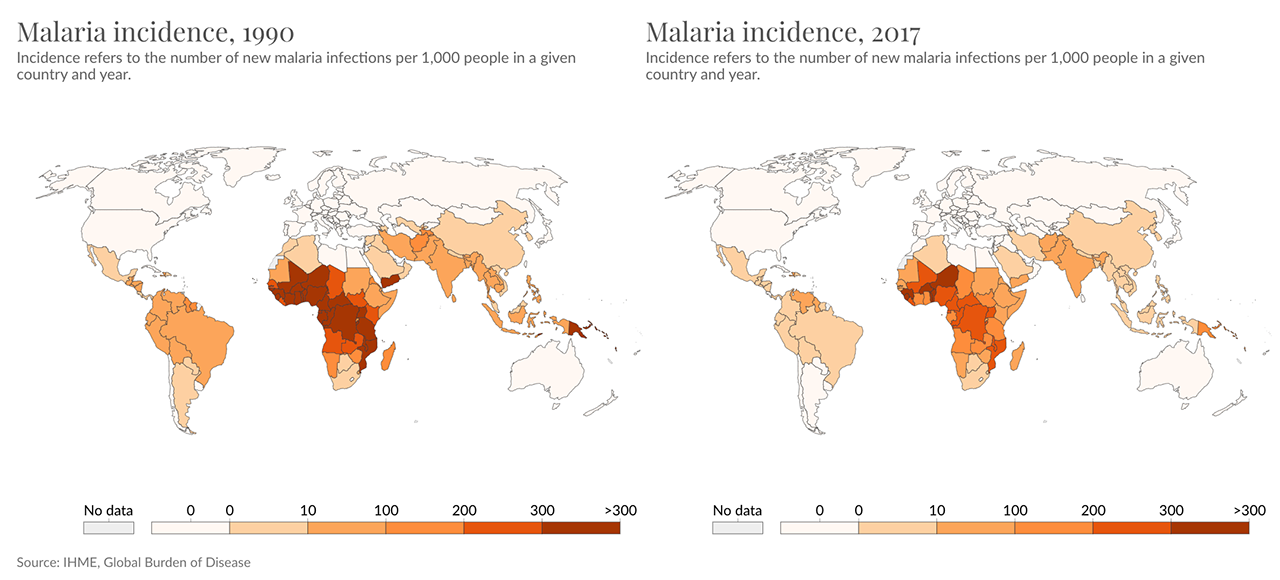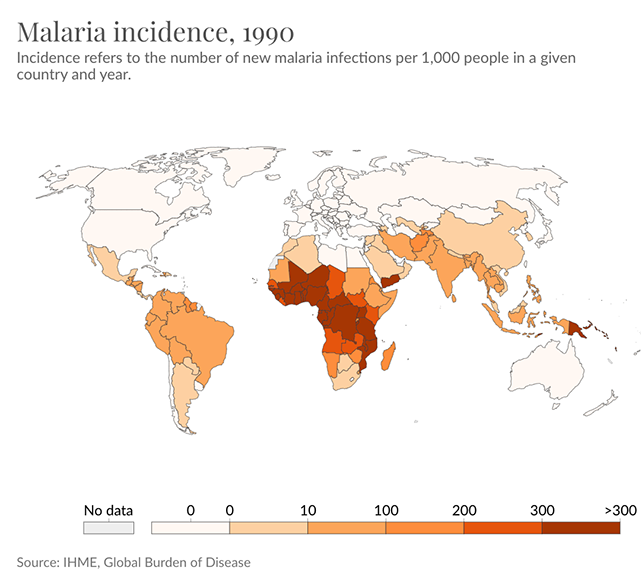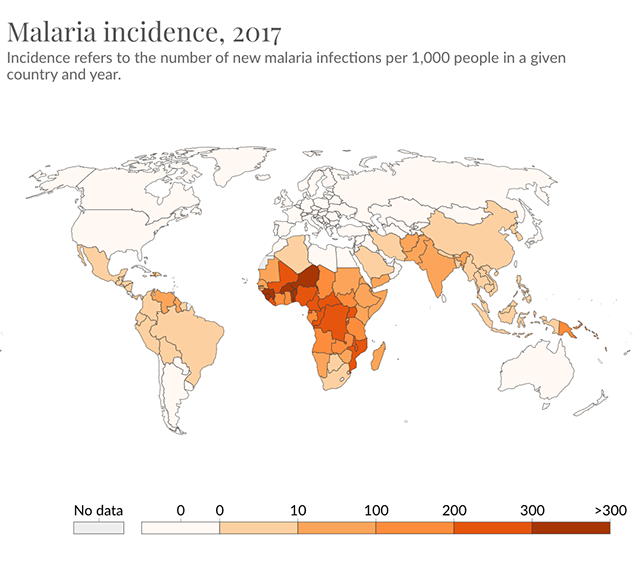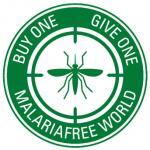25 April is World Malaria Day Every year on this one day, malaria is in the picture on a global scale. This is not to say that malaria receives as much (media) attention as the coronavirus. In fact, it is completely overshadowed this year. And that’s rather strange.
Every 2 minutes, a child (without other chronic health problems) dies from malaria. Why isn’t this on all news sites with daily updates?
The answer is sad and shocking at the same time: It’s ‘not in my backyard’. It doesn’t effect rich countries! That is why it is hardly ever in the media, it is not given much attention and there is insufficient research into a worldwide sustainable solution.
| Corona | Malaria | |
| Number of infections | > 2,4 million | > 228 million |
| Number of deaths | 165.000 | > 435.000 |
| Age | 95% > 70 years | 95% < 5 years |
| Chronic conditions already present in fatalities | 99% | 0%* |
| Contamination area | Worldwide | (Sub)tropics |
| Type of area | Developed countries (rich) | Developing countries (poor) |
| Largest source of infection | USA (> 30%) | Nigeria (24%) |
– Annual figures WHO 2018
* Other than possible malnutrition and possible deviating hygienic conditions
25 April is World Malaria Day Every year on this one day, malaria is in the picture on a global scale. This is not to say that malaria receives as much (media) attention as the coronavirus. In fact, it is completely overshadowed this year. And that’s rather strange.
| corona | malaria | |
| Number of infections | > 2,4 million | > 228 million |
| Number of deaths | 165.000 | > 435.000 |
| age | 95% > 70 years | 95% < 5 years |
| Chronic conditions already present in fatalities | 99% | 0%*** |
| contamination area | worldwide | (sub)tropics |
| type of area | Developed countries (rich) | Developing countries (poor) |
| largest source of infection | USA (> 30%) | Nigeria (24%) |
Every 2 minutes, a child (without other chronic health problems) dies from malaria. Why isn’t this on all news sites with daily updates?
The answer is sad and shocking at the same time: It’s ‘not in my backyard’. It doesn’t effect rich countries! That is why it is hardly ever in the media, it is not given much attention and there is insufficient research into a worldwide sustainable solution.
** annual figures WHO 2018
*** other than possible malnutrition and possible deviating hygienic conditions
Malaria is an avoidable disease
I hold a very different opinion. At Travel Health Group we hold a very different opnion. At Care Plus® we hold a very different opinion.
Malaria is an avoidable infectious disease. After all, if you are not bitten by a mosquito with the malaria parasite in its body, you will not get malaria. So it is easy to prevent. Hence our great interest in education and focus on prevention!
Let’s put malaria in the news this time, if only on World Malaria Day, 25 April. The theme is “zero malaria starts with me”. I care about that. Everyone should care about that. There are many initiatives on the internet that contribute to “zero malaria”.
At Travel Health Group / Care Plus we have had a clear vision for years: “a malaria-free world in 2030”. In 2015, this goal was solidified, in line with the objective of the World Health Organisation at the time. This is the motivation for our team to set their alarm clocks every day and it’s how we manage to enthuse business partners.
We have made this transparent: 1% of our turnover goes to this higher goal of making the world malaria-free by 2030. In specific terms, we do this with our ‘Buy One Give One’ campaign. Everyone who buys a Care Plus® product, for example a mosquito net or an anti-insect product, ensures that we can protect families in malaria areas by distributing impregnated and printed mosquito nets there.
We also support innovations and applicable scientific research that contributes to our higher goal. Finally, we facilitate a weekly newsletter (Malaria World) that is issued to more than 9,000 malaria professionals worldwide, created by young scientists in Kenya.
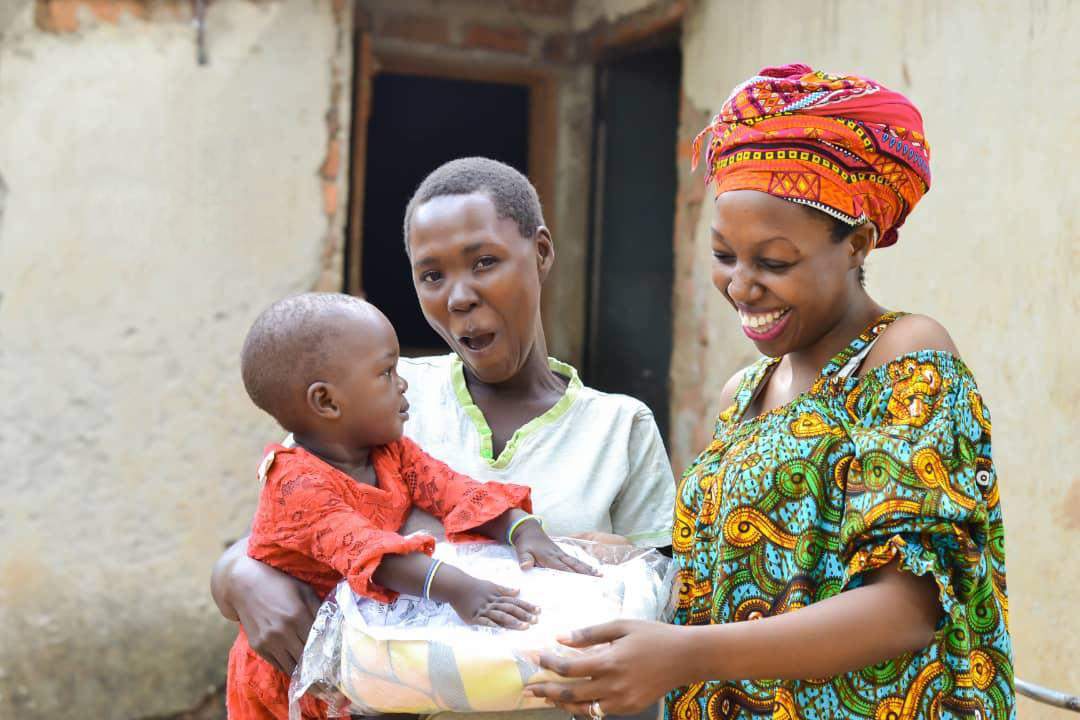
Awareness of malaria at least 1 day a year?
Can I ask you to consider malaria as the most important figure at least 1 day a year: at least on 25 April? Better still, to be aware of malaria every day. And even better is to know how you can contribute to a malaria-free world in 2030! Do you have any ideas about this? Let me know!
Arnoud Aalbersberg, Chief Mosquito Officer
+31654332824


